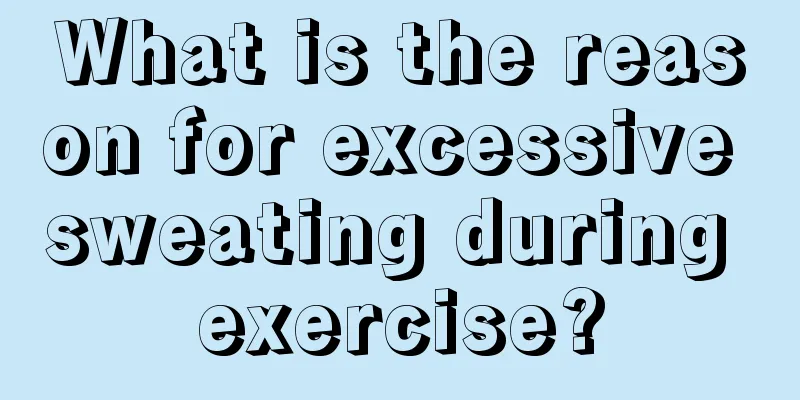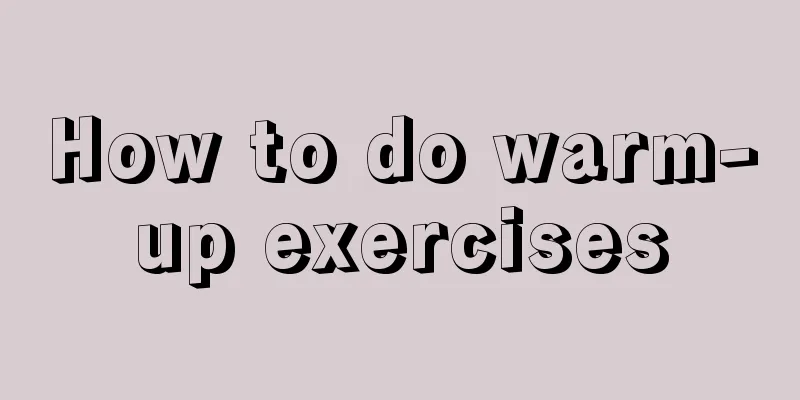Why do I sweat when I exercise?

|
In real life, many people sweat after exercise, especially those who do not exercise for a long time. They will sweat a lot. Exercise will consume some water and excess fat in the body, and fat and toxins and waste in the body will be discharged from the body with sweat. While exercising, it will constantly stimulate every part of the body, causing the body to feel hot and sweaty. So why do you sweat when you exercise? Let’s take a look at it together below. It is normal to sweat a lot during exercise Sweating is a way for the human body to maintain a normal temperature. In order to prevent the body temperature from being too high and causing problems, the sweat glands under the skin secrete body fluids, which evaporate and take away the excess temperature in the body. The temperature is high in summer, which causes the human body's internal and external body temperatures to be too high. Organs are prone to edema when they are at too high a temperature, which is life-threatening. Therefore, in summer, the human body secretes a large amount of body fluids to maintain normal body temperature. Some people sweat more or less for many reasons. For example, obesity. Body fat is like a sponge for keeping warm and has a strong thermal insulation effect. The human body also generates a lot of heat due to exercise, and the fat in the body just hinders the dissipation of this heat. In order to dissipate heat as quickly as possible, the body sweats profusely. But this is not necessary for thin people. But there is another reason, which is calcium deficiency. Many people know that sweat contains a lot of sodium chloride, so salt should be supplemented if you sweat a lot, but some people ignore the need to supplement calcium after sweating. According to research, every 1000 ml of sweat contains 1 mg equivalent of calcium. Under normal circumstances, the loss of calcium in sweat is only 15 mg per day, which is not very important. However, people working in high temperature environments in summer lose more than 100 mg of calcium in sweat per hour. This amount accounts for almost 30% of the total calcium excretion, which can easily lead to hypocalcemia, manifested as cramps in the patients' hands and feet, muscle twitches, and long-term calcium deficiency can cause adults to suffer from rickets, easy fractures, and frequent back and leg pain. In order to prevent hypocalcemia after sweating, workers who work in high temperatures should take in enough calcium in their daily lives. Foods rich in calcium include milk, dairy products, green leafy vegetables, fish, seafood and other foods. Vitamin D promotes calcium absorption. Foods rich in vitamin D include cod liver oil, animal liver, egg yolk, etc. Increased exposure to sunlight can also increase vitamin D levels in the body. This is the end of the introduction about why you sweat when you exercise. I believe that you all understand why you sweat when you exercise. When exercising, you should replenish your body with sufficient water in time. Due to excessive sweating, the body will become dehydrated, so at this time you should drink some water before exercising. |
<<: What causes excessive sweating during exercise?
>>: Can regular exercise improve your sex life?
Recommend
Push-ups to shape handsome muscular men
Push-ups are one of the most common fitness exerc...
Will jogging make your calves thicker?
As we age, our bodies will also change. We will f...
When is the evening exercise time?
Many people will exercise after meals at night, e...
What are the shoulder muscle exercises?
Men's shoulder muscles give people a sense of...
Why aren't my abdominal muscles obvious?
Many people have been doing abdominal muscle exer...
Benefits of playing basketball
It has to be said that basketball has become one ...
What are the outdoor sports?
In this era where people are increasingly focusin...
What are the aerobic exercises in the gym?
Nowadays, as dietary conditions have generally im...
Can you eat fruit after exercise and what should you pay attention to?
Many people will feel thirsty after exercise and ...
What should we pay attention to when doing yoga?
Yoga regimen is extremely perfect from both the b...
How many sit-ups do you need to do a day to develop abdominal muscles?
Maybe many of our friends think that abdominal mu...
Can sitting and stretching your legs help you lose weight directly?
For people in the 21st century, losing weight is ...
Local weight loss aerobics method
Many people have a lot of flesh on their shoulder...
How to choose the right dumbbell for you?
Nowadays, many people like to keep healthy. The m...
Can climbing stairs help you lose weight?
In daily life, many people are too busy with work...









